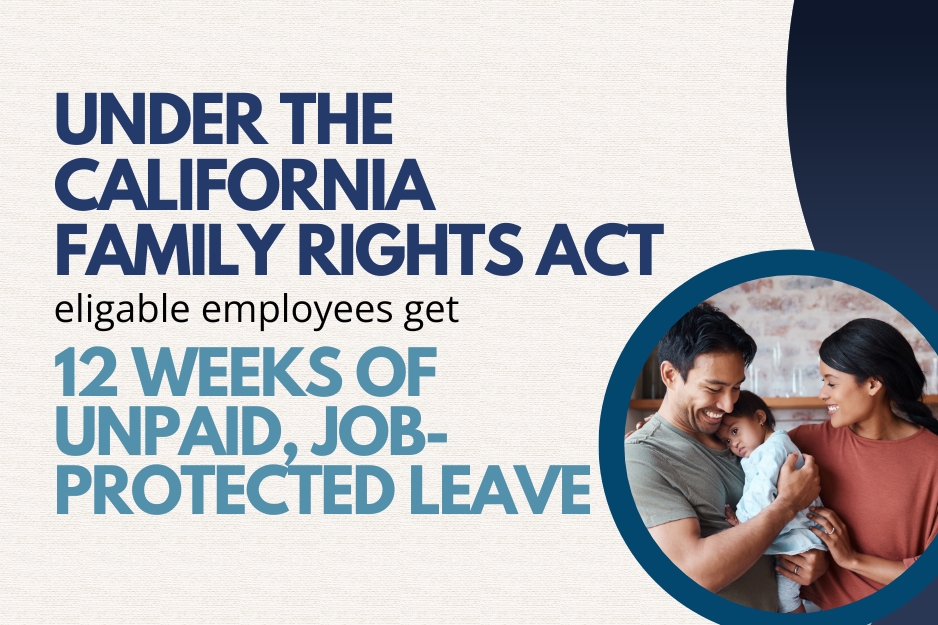
Time is Critical: Understanding Sexual Harassment Claim Deadlines in California
If you’ve experienced sexual harassment in a Los Angeles workplace, knowing how much time you have to take legal action is crucial. California law establishes specific deadlines for filing sexual harassment claims, and missing these time limits can permanently bar you from seeking justice. These deadlines—legally known as statutes of limitations—vary depending on whether you’re filing with a government agency or pursuing a lawsuit in court. Understanding these timeframes is essential as they directly impact your ability to hold harassers accountable and receive the compensation you deserve. Let’s explore the critical deadlines you need to know when considering a sexual harassment claim in California.
Don’t let time slip through your fingers when it comes to filing a sexual harassment claim in Los Angeles. At RD Law Group APC, we’re here to help you navigate the legal maze and ensure your rights are protected. Reach out to us today at (424) 535-1500 or contact us to take the first step toward justice.

California’s Sexual Harassment Laws: Your Rights and Protections
California has some of the most comprehensive workplace harassment protections in the nation, especially when one considers 2025’s new sexual harassment laws. Under the Fair Employment and Housing Act (FEHA), sexual harassment is prohibited in all California workplaces, including those in Los Angeles. This protection extends to employees, job applicants, unpaid interns, volunteers, and contractors. California law recognizes two primary forms of sexual harassment: quid pro quo harassment (where work benefits are conditioned on sexual favors) and hostile work environment harassment (where unwelcome sexual conduct creates an intimidating or offensive workplace).
California’s SB 1300, which went into effect in 2019, further strengthened these protections by establishing that a single incident of harassment may be sufficient to create a triable issue regarding the existence of a hostile work environment. Additionally, California law protects employees from retaliation for reporting harassment, filing a complaint, or participating in an investigation. These protections apply regardless of immigration status, ensuring that all workers have the right to a harassment-free workplace.
Critical Deadlines for Sexual Harassment Claims in California
Understanding the specific timelines for filing sexual harassment claims in California is essential to preserving your legal rights. These deadlines are strictly enforced, and failing to meet them typically means losing your right to pursue a claim entirely. The clock starts ticking from the date of the harassment or discrimination, which is why acting promptly is crucial for protecting your rights.
-
Three-Year Deadline for Filing with the California Civil Rights Department (CRD): As of January 1, 2020, individuals have three years from the date of the alleged harassment to file a complaint with California’s Civil Rights Department. This represents a significant extension from the previous one-year deadline, giving victims more time to come forward.
-
One-Year Deadline After Receiving Right-to-Sue Notice: After filing with the CRD, if you receive a “right-to-sue” notice, you have one year from the date of that notice to file a civil lawsuit in court. This means that even if you file with the CRD within the three-year period, you must still be mindful of this additional one-year deadline to pursue your case in court.
-
Extended Deadlines for Childhood Sexual Abuse Cases: California Assembly Bill 218, which took effect in 2020, significantly extended the statute of limitations for childhood sexual abuse survivors. Victims now have until age 40 or five years from discovering psychological injuries resulting from childhood abuse to file civil claims—a substantial extension from previous limitations.
-
90-Day Deadline for Federal EEOC Claims: If you’re filing a claim with the federal Equal Employment Opportunity Commission (EEOC) instead of the California CRD, you have just 300 days from the harassment incident to file your complaint—a much shorter timeframe than California’s state process.
-
Special Provisions for Government Employees: If your harassment claim is against a government entity in Los Angeles or elsewhere in California, you must typically file a government tort claim within six months of the incident before pursuing other legal remedies, adding another layer of deadline complexity.
Navigating Sexual Harassment Claims with Professional Legal Support
Resolving sexual harassment claims requires careful attention to legal procedures and deadlines. While you can file a complaint with California’s Civil Rights Department on your own, the process becomes significantly more manageable with experienced legal guidance. A sexual harassment lawyer in Los Angeles can evaluate the strength of your case, ensure all deadlines are met, gather appropriate evidence, and handle communications with your employer and government agencies.
At RD Law Group APC, we understand the emotional and professional toll sexual harassment takes on victims. Our approach focuses on both immediate intervention to stop ongoing harassment and pursuing appropriate compensation for damages you’ve suffered. This may include lost wages, emotional distress damages, and in some cases, punitive damages against particularly egregious offenders. We can also negotiate confidential settlements when appropriate or represent you through trial if necessary. Remember that sexual harassment cases often involve complex workplace dynamics and power imbalances that can be difficult to navigate alone.
Types of Sexual Harassment and Their Impact on Legal Claims
Understanding the different forms of sexual harassment recognized under California law can help you identify actionable conduct and properly document your experiences. This knowledge directly impacts how you prepare your claim and the evidence you’ll need to gather within the statute of limitations period. Each type of harassment may present different documentation challenges and require specific approaches to building a strong legal case.
Quid Pro Quo vs. Hostile Work Environment Harassment
California law recognizes two distinct categories of workplace sexual harassment, each with unique elements that must be proven. This quid pro quo harassment occurs when a supervisor or someone with authority conditions job benefits on sexual favors or threatens negative employment consequences if sexual advances are rejected. This form often leaves documentation trails through emails, texts, or witnesses to inappropriate propositions.
Hostile work environment harassment, meanwhile, involves unwelcome sexual conduct that creates an intimidating, hostile, or offensive workplace atmosphere. This can include unwanted touching, sexual comments, displaying offensive materials, or persistent unwelcome romantic attention. We’ve observed that hostile work environment cases often require more extensive documentation of patterns of behavior, as they typically don’t hinge on a single dramatic incident but rather on ongoing conduct that collectively creates a hostile atmosphere.
Evidence Collection Within the Statute of Limitations Period
The extended three-year filing period for California sexual harassment claims provides valuable time to gather compelling evidence. However, starting this process early is crucial, as memories fade and documentation becomes harder to obtain as time passes. Strong evidence collection can significantly strengthen your case and increase the likelihood of a favorable resolution. The type and quality of evidence you gather may determine whether your case is resolved through early settlement or requires litigation. Understanding the allotted timeline for evidence collection is critical for making the most of protections for sexual abuse survivors.
Critical Documentation to Gather for Your Sexual Harassment Claim
Effective evidence collection is a time-sensitive process that should begin as soon as possible after experiencing harassment. Start by maintaining a detailed chronological journal documenting each incident, including dates, times, locations, what occurred, who was present, and how you responded. Save all related communications, including emails, text messages, social media interactions, voicemails, and written notes that demonstrate the harassment. Preserve workplace documents like performance evaluations, particularly those showing changes before and after rejecting advances or reporting harassment.
Identify potential witnesses who observed the harassment or its effects on you, and note their contact information. Report the harassment through proper channels following your employer’s policies, keeping copies of all reports and responses. Document any medical treatment sought for physical or emotional distress resulting from the harassment, including therapy sessions. Finally, retain employment records showing any adverse actions following the harassment or your report, such as demotions, schedule changes, or termination notices.
Special Circumstances That May Extend Filing Deadlines
While California’s statutes of limitations for sexual harassment claims are generally strict, certain circumstances may extend these deadlines. Understanding these exceptions is crucial if you’re approaching or have passed the standard filing deadlines, as they might preserve your right to seek justice despite delays in coming forward. These exceptions recognize that various legitimate factors can prevent victims from immediately pursuing claims.
Continuing Violations Doctrine and Other Deadline Extensions
Several legal principles may extend your time to file a sexual harassment claim in California. The “continuing violations doctrine” applies when harassment constitutes an ongoing pattern rather than isolated incidents. Under this doctrine, if at least one incident occurred within the filing period and is connected to earlier incidents forming a continuous pattern, you may include the earlier incidents in your claim even if they occurred outside the standard limitations period.
California also recognizes “equitable tolling,” which may pause the statute of limitations clock while you pursue alternative remedies in good faith, such as your employer’s internal complaint process. Additionally, if the harasser concealed evidence or threatened you to prevent reporting, “equitable estoppel” principles may prevent them from using the statute of limitations as a defense. For survivors of childhood sexual abuse, California law now allows claims until age 40 or within five years of discovering psychological injuries caused by the abuse, significantly extending previous limitations. Finally, for certain harassment cases involving criminal conduct, the deadline may align with the criminal statute of limitations rather than civil timelines.
Frequently Asked Questions
-
What exactly is the deadline for filing a sexual harassment claim with California’s Civil Rights Department?
In California, you have three years from the date of the harassment incident to file a complaint with the Civil Rights Department (CRD, formerly DFEH). This three-year deadline was established when California extended the previous one-year limitation in 2020. After filing with the CRD and receiving a “right-to-sue” notice, you then have one year to file a civil lawsuit in court. These deadlines are strictly enforced, so it’s advisable to consult with a Los Angeles sexual harassment attorney as soon as possible after experiencing harassment.
-
How do California workplace harassment laws protect me if I work for a small employer in Los Angeles?
California’s Fair Employment and Housing Act (FEHA) applies to all employers with at least one employee, providing broader coverage than federal laws that only apply to employers with 15 or more employees. This means that even if you work for a small business in Los Angeles, you’re still protected under California’s workplace harassment laws. Small employers must comply with the same anti-harassment requirements, including prevention policies, training, and prohibition of retaliatory actions. Your right to file a claim within the three-year statute of limitations remains the same regardless of employer size.
-
Can I still file a Los Angeles harassment claim if the three-year deadline has passed?
While California’s criminal statute of limitations is generally strict, certain exceptions may allow you to file after this deadline has passed. If the harassment was part of a continuing pattern (the “continuing violations doctrine”), if you were reasonably delayed in discovering the harassment, or if the harasser concealed evidence or threatened you to prevent reporting, the court might allow your claim to proceed. Additionally, if the harassment included criminal conduct, different timelines might apply. These exceptions are complex and fact-specific, making it essential to consult with a sexual harassment lawyer in Los Angeles who can evaluate your specific circumstances and determine if any exceptions might apply to your situation.
-
What compensation might I receive from a successful sexual harassment lawsuit in Los Angeles?
Successful sexual harassment claims in Los Angeles can result in various forms of compensation, including back pay for lost wages if harassment led to termination or resignation, front pay for future income losses, compensation for emotional distress and psychological harm, and coverage for therapy or medical expenses related to the harassment. California law also allows for punitive damages in cases involving particularly egregious conduct. Additionally, you may recover attorney’s fees and legal costs. The specific compensation varies greatly depending on factors like severity of harassment, duration, employer’s response, and impact on your career and well-being. A Los Angeles employment attorney can provide a more personalized assessment based on your specific circumstances.
-
Is there a difference between filing deadlines for workplace harassment versus harassment that occurred outside of work?
Yes, different legal frameworks and deadlines apply depending on where the harassment occurred. Workplace sexual harassment claims in California fall under the Fair Employment and Housing Act (FEHA) with the three-year filing deadline with the Civil Rights Department. For harassment outside of work settings, such as in housing, education, or business establishments, you would typically pursue claims under different sections of California civil rights laws, potentially with different timelines. For sexual harassment that constitutes assault or other criminal conduct outside of employment, you might pursue a personal injury claim with a two-year statute of limitations, or potentially longer for certain sex crimes. Each context has its own legal framework, so consulting with a Los Angeles employment lawsuit attorney who understands these distinctions is important for determining the correct deadlines and procedures.
Work with a Sexual Harassment Lawyer
Confronting sexual harassment requires courage, and navigating the legal process shouldn’t add to your burden. A qualified sexual harassment lawyer in Los Angeles can guide you through California’s strict filing deadlines while helping you build a compelling case. When selecting an attorney, look for someone with specific experience in sexual harassment cases under California employment laws, not just general practice attorneys.
The right attorney will understand the sensitive nature of these cases and maintain your confidentiality throughout the process. They should clearly explain all deadlines applicable to your situation and develop a strategy that acknowledges your personal goals, whether that’s financial compensation, workplace policy changes, or simply acknowledgment of the wrong done to you. Most reputable attorneys offer initial consultations where you can discuss your case and determine if they’re the right fit for your needs. Remember that consulting with an attorney doesn’t obligate you to file a claim, but it does ensure you understand your options before the filing deadlines expire.
Time waits for no one, especially when it comes to filing a sexual harassment claim in Los Angeles. At RD Law Group APC, we’re ready to help you seize the moment and protect your rights. Don’t hesitate to reach out at (424) 535-1500 or contact us to start your journey toward justice today.



